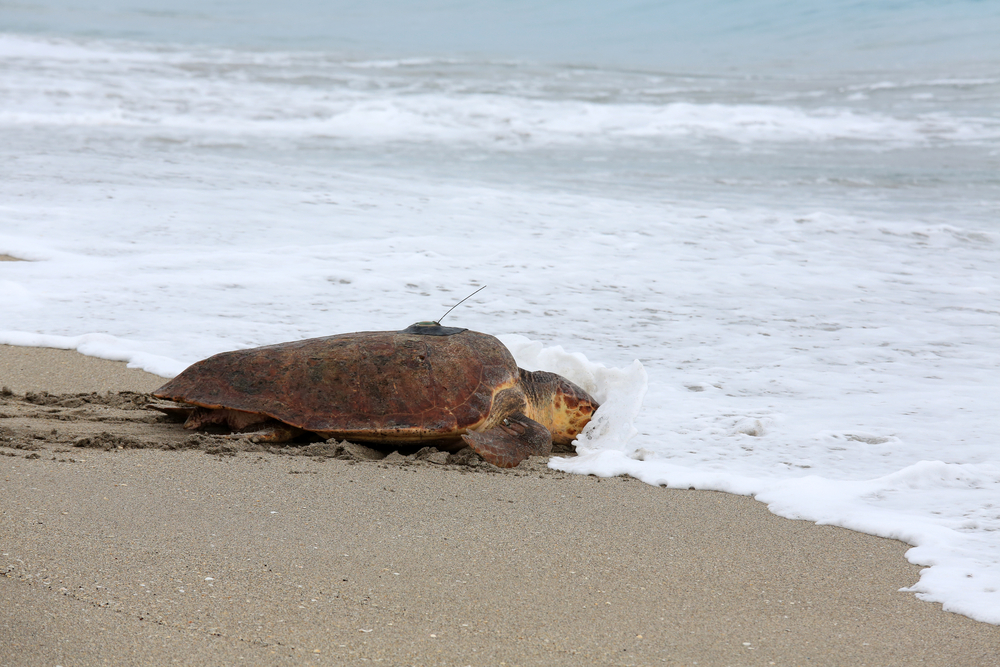
The British public has been urged to keep an eye out for stranded turtles when they’re walking along their favourite beaches this week.
The Marine Conservation Society (MCS) says marine turtles spotted near Swanage, and thought to be endangered loggerheads, may well be at risk of stranding on nearby beaches in the coming days as the sea temperature in the south west continues to drop.
The UK marine charity was contacted by Sarah Fargher from Fuzzacker Guided Walks, based in the New Forest, after the group of walkers she was with spotted two turtles whilst walking along the coast path at Durlston Head on Sunday, October 18th.
‘When one of our group said “It looks like a turtle”, I resorted to some pretty unsubtle persuasion in order to borrow the highest strength binoculars on the cliff,’ said Sarah. ‘As it swam towards us, its ochre skin and brown shell became unmistakable; I was so excited when I realised it must be a loggerhead. I just hope it makes its way back to warmer waters,’
Dr Peter Richardson, MCS Head of Biodiversity and Fisheries, says that—of the seven species of marine turtle—loggerheads breed at the most northerly latitudes, with the nearest breeding populations to the UK found in the Mediterranean, the Cape Verde Islands and the south eastern USA.
‘This is a fantastic record because live loggerhead turtles are rarely spotted in UK seas, but to see two together is incredibly lucky,’ said Dr Richardson.
Juvenile loggerheads spend their first few years swimming at the surface of the open ocean feeding on mainly jellyfish, before settling in shallower waters where they use their powerful beaks to eat crabs and other shellfish. Usually, young loggerheads thrive in warmer waters, but will stop feeding when sea temperatures drop below about 15ºC.
‘South West inshore surface temperatures waters are about 15ºC at the moment. As the seas cool down these turtles will stop feeding, lose condition and suffer from acute hypothermia. If they are lucky, they may strand alive on a beach, and if found in time they can be rescued and rehabilitated back to health with specialist treatment’.
‘Sometimes walkers will find a stranded turtle and put it back in the sea,’ said Dr Richardson. ‘But this absolutely the wrong thing to do because hypothermic turtles will certainly perish if they are left in the water. We urge anyone who finds a turtle on UK shores to report it immediately, and try and make sure the tides don’t wash them back to sea’.
Live stranded turtles in the UK should be reported immediately to Marine Environmental Monitoring on 01239 683033 or the regional numbers listed on the UK Turtle Code at http://www.mcsuk.org/downloads/wildlife/turtlecode.pdf.
